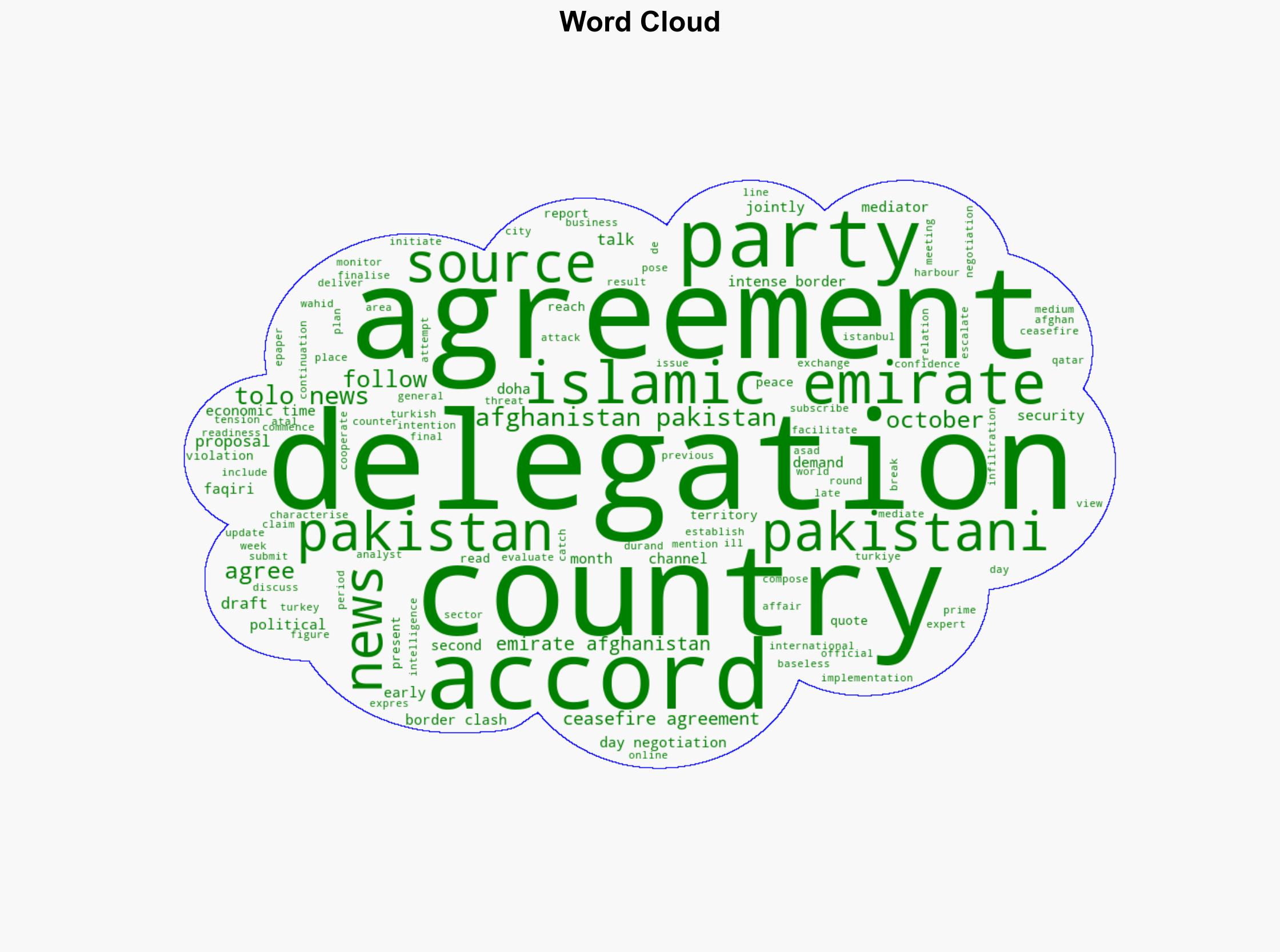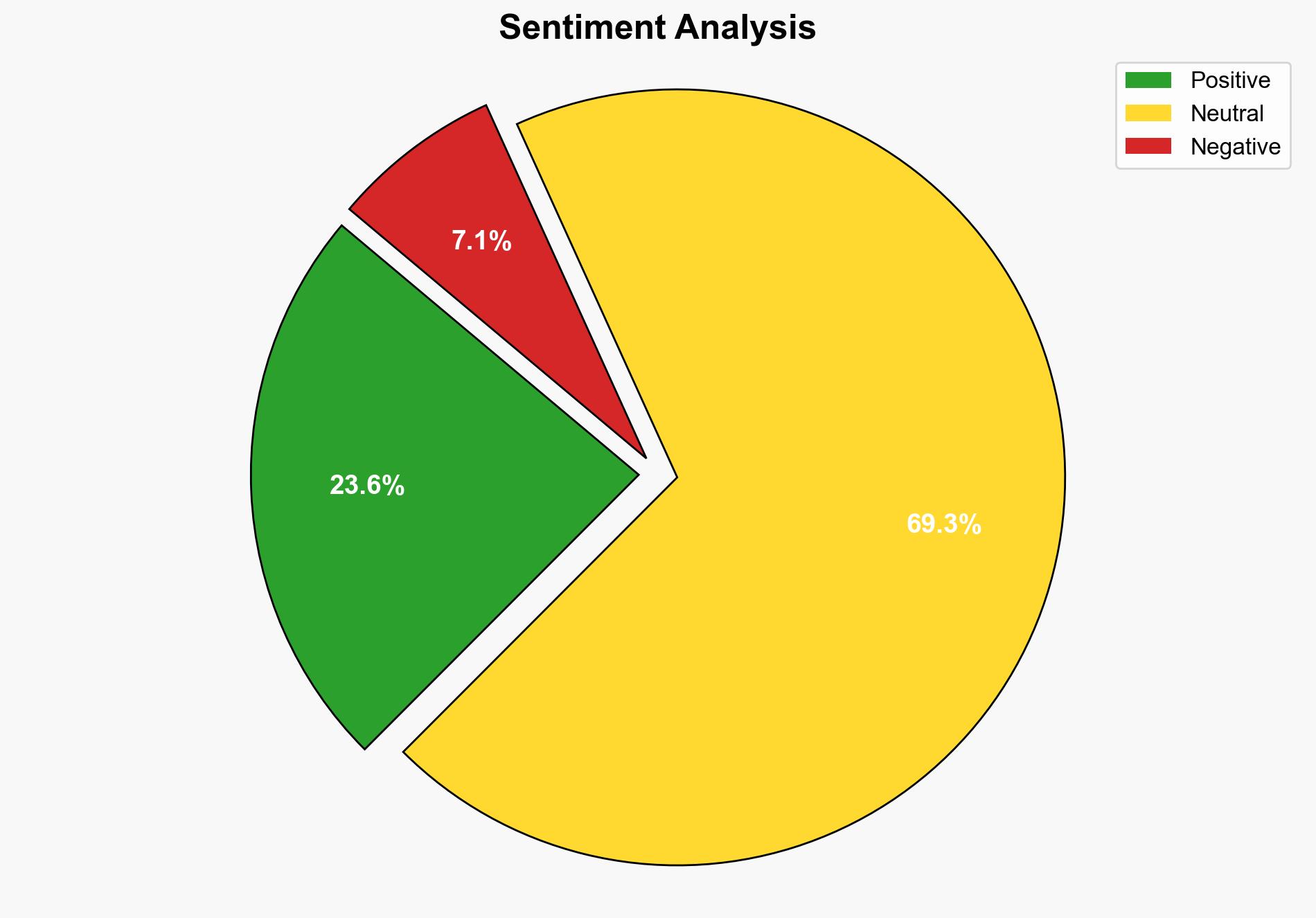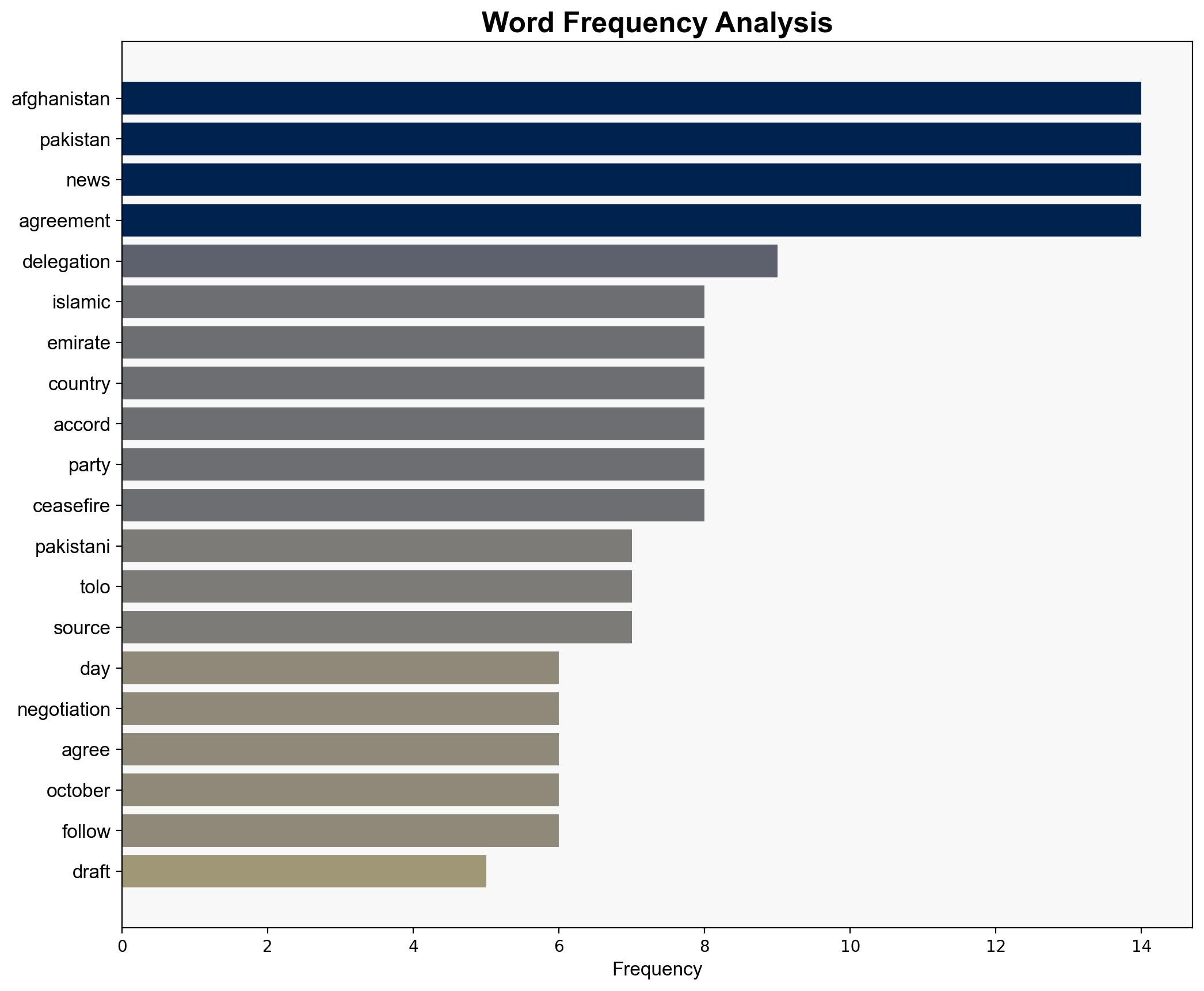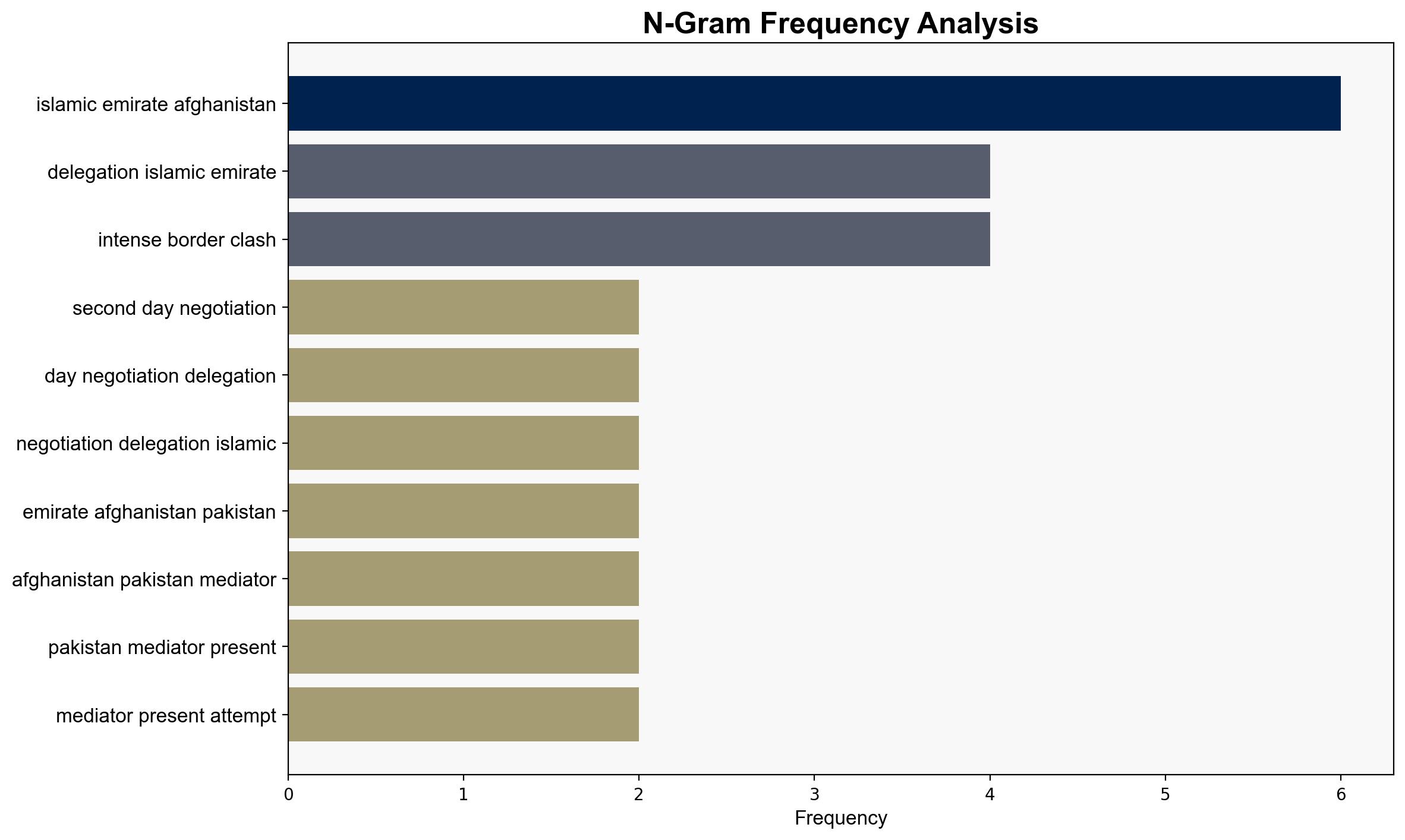Afghanistan demands Pakistan stop violations of its land and air border in draft peace proposal – The Times of India
Published on: 2025-10-27
Intelligence Report: Afghanistan demands Pakistan stop violations of its land and air border in draft peace proposal – The Times of India
1. BLUF (Bottom Line Up Front)
The most supported hypothesis is that Afghanistan’s demands are part of a broader strategy to assert sovereignty and gain leverage in ongoing peace negotiations. Confidence level: Moderate. Recommended action: Monitor developments closely and encourage diplomatic engagement to prevent escalation.
2. Competing Hypotheses
1. **Afghanistan’s Strategic Assertion**: Afghanistan’s demands are primarily aimed at asserting its sovereignty and gaining leverage in negotiations. The emphasis on border violations is a tactic to strengthen its position in peace talks and ensure Pakistan’s compliance with agreed terms.
2. **Pakistan’s Defensive Posture**: Pakistan’s counterclaims suggest that its actions are defensive, aimed at preventing infiltration and attacks from Afghan territory. This hypothesis posits that Pakistan views Afghanistan’s demands as a strategic maneuver to shift blame and pressure Pakistan internationally.
Using ACH 2.0, the first hypothesis is better supported by the consistent emphasis on border issues in Afghan statements and the involvement of international mediators, suggesting a strategic push for international support.
3. Key Assumptions and Red Flags
– **Assumptions**: The assumption that both parties are negotiating in good faith may not hold if either side is using the talks to buy time or gain tactical advantages.
– **Red Flags**: The lack of detailed information on the specific nature of alleged border violations and the absence of independent verification of claims from either side.
– **Potential Bias**: Confirmation bias may influence interpretations, with each side selectively presenting information that supports its narrative.
4. Implications and Strategic Risks
– **Geopolitical Risks**: Continued tensions could destabilize the region, affecting neighboring countries and international stakeholders.
– **Escalation Scenarios**: Failure to reach an agreement could lead to increased border skirmishes, impacting regional security and economic stability.
– **Psychological Impact**: Prolonged conflict may exacerbate distrust between the populations of both countries, hindering future reconciliation efforts.
5. Recommendations and Outlook
- Encourage third-party mediation to facilitate transparent dialogue and verification of claims.
- Promote confidence-building measures, such as joint border monitoring, to reduce tensions.
- Scenario Projections:
- Best Case: Successful negotiation leads to a comprehensive peace agreement, stabilizing the region.
- Worst Case: Breakdown in talks results in escalated military conflict and regional instability.
- Most Likely: Ongoing negotiations with intermittent border incidents, requiring sustained diplomatic efforts.
6. Key Individuals and Entities
– Wahid Faqiri: International relations expert expressing confidence in peace negotiations.
– Asad Atal: Political affairs analyst commenting on Pakistan’s stance.
7. Thematic Tags
national security threats, regional focus, peace negotiations, border disputes




